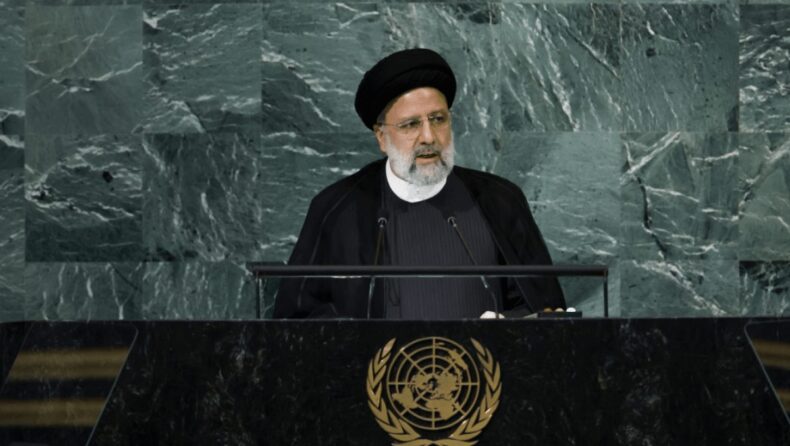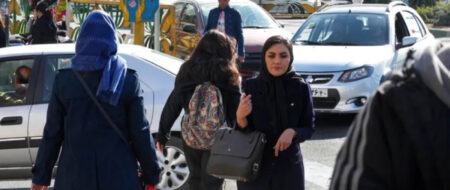As the world takes notice of Iran’s Hijab protests erupting in various cities, Iranian President Ebrahim Raisi hits back at the “double standards” of the west.
Iranian President Ebrahim Raisi did not hold back punches when he addressed the UN General Assembly and then at the press conference on the sidelines of the annual world leaders’ meeting.
At the press conference, Iranian President Ebrahim Raisi said that the custodial death of Mahsa Amini will “certainly be investigated” and that he has told the deceased’s family that the government will “continue steadfastly to investigate that incident.”
Referring to the protests, President Raisi said, “Our utmost preoccupation is the safeguarding of the rights of every citizen.”
Additionally, he questioned if the deaths of people killed by American police were being investigated. Criticizing the US over uneven standards applied to human rights violations. Joe Biden during his speech at the UN General Assembly expressed support for the protesting women and citizens of Iran.

He hit back at the west regarding human rights, decrying the “double standards” that exist when it comes to Iran and Western countries.
Earlier in his speech at the General Assembly, President Raisi pointed out, “Iran rejects some of the double standards of some governments vis-a-vis human rights” and stated that “true justice, fairness and human rights to all” will not prevail till the “double standards” in dealing with issues continue.
Raisi’s comparison echoes an approach taken frequently by Iranian authorities who, when accused of violating human rights, routinely point to Western society’s “hegemony” and demand that the same standards apply to them.
Iran’s Hijab protests have been brought into global focus as they expand to other cities, calling for an end to strict social rules and the morality police who are accused of killing Mahsa Amini in custody by beating her to death.
Why did the protests start in Iran?
The moral police apprehended Mahsa Amini, a 22-year-old Kurdish-Iranian woman, for failing to properly cover her hair, accusing her of breaking the so-called morality laws, which demand that women completely cover their arms and hair.
The morality police then took Mahsa Amini to a detention facility where she was to be “educated” on the morality codes.

However, shortly thereafter, she slipped into a coma, allegedly after she was beaten. The family of Mahsa Amini has accused the police of beating her into a coma. After getting admitted to the hospital, she succumbed to her injuries.
The police claim that she had a history of medical ailments that led to a heart attack and then her death. Amini’s family disputed the claim.
In an apparent wordplay on the popular pro-government slogan “Death to America,” protesters have taken to the streets to chants of “Death to the morality police” and “women, life, freedom.”
Following the election of the conservative President Ebrahim Raisi, the Iranian police have begun a campaign against “immodest dress.”
The youth have been growing resentful of the current social, economic and political situation and the death of Mahsa Amini has acted as a catalyst for this, as the authorities continue to deny any foul play.
The protests against the morality police and strict social restrictions are seeing high participation by women who have taken to the streets to protest by removing their headscarves, burning them, and even cutting their hair.

Men have also joined the protest and, as a mark of solidarity, are shaving their heads, symbolizing the killing of Mahsa Amini for showing her hair.
In Iran’s Kurdish region, the police and military ruthlessly put down parts of the protests on Monday, killing five protestors, according to rights organizations.
These are the biggest protests seen since 2019 when major protests broke out after the government increased the price of fuel.
Despite elections and public discourse, Iran’s highest levels of government come under the supreme leader, who has the final say on significant state matters.
While Iranian President Ebrahim Raisi has assured an investigation into that incident, it does not guarantee a fair avenue to conduct the investigation. Sanctions have been imposed by the US on the morality police and leaders of other Iranian security agencies over the suppression of protests. The course that the protests take will determine whether the strict social restrictions and morality police will end or continue as they have.













